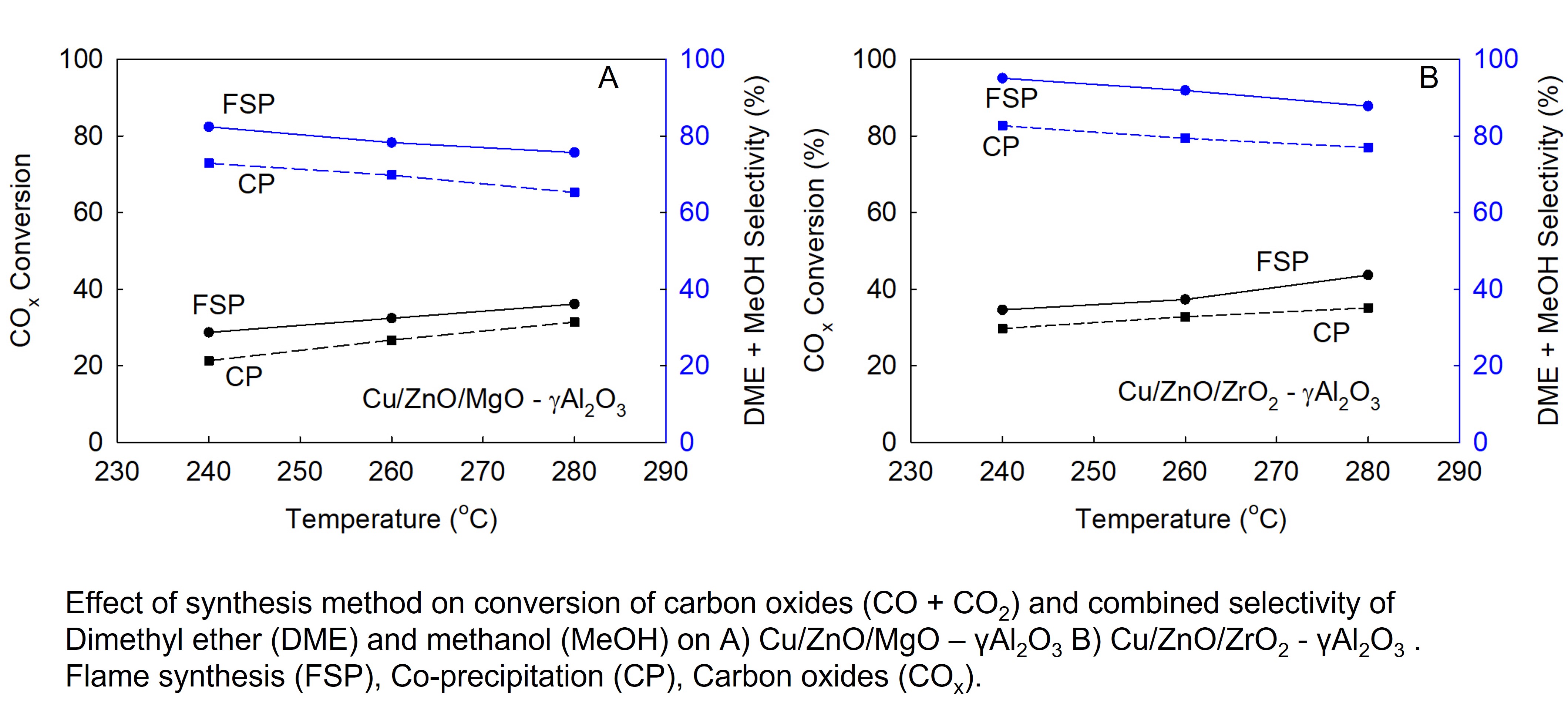2023 AIChE Annual Meeting
(84r) Effect of Synthesis Method on Performance of Hybrid Catalyst for Direct DME Synthesis: Flame Synthesis and Co-Precipitation.
In this work, Cu/ZnO/MgO and Cu/ZnO/ZrO2 catalyst is synthesized via flame synthesis and admixed with γ-Al2O3, to design the hybrid catalyst. An alternate hybrid catalyst with Cu/ZnO/MgO and Cu/ZnO/ZrO2 synthesized via co-precipitation and admixed with γ-Al2O3 is also designed. The hybrid catalysts activity, selectivity, and stability for direct DME synthesis from a CO/CO2/H2 mixture is evaluated and compared to observe the effect of catalyst synthesis route on the performance of the hybrid catalyst. Our finding show that the hybrid catalyst manufactured via flame synthesis provides a higher activity and higher selectivity for DME over that synthesized via co-precipitation. The characterization results reveal the structural characteristics which provides insight to describe the superior performance of the flame synthesized catalyst. Altogether, flame synthesis is used to elucidate the governing aspects for high performance catalysts for direct DME synthesis.
[1] Asthana, et al, Energy & Fuels 36;5 (2022) 2673-2687.
[2] Singh, et al, Fuel 318 (2022) 123641.
[3] Okonkwo et al, Journal of the American Ceramic Society 105;2 (2022) 1481-1490.
